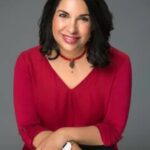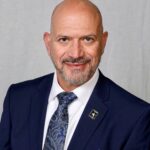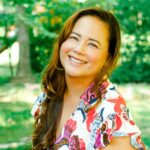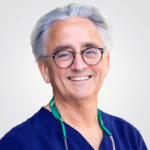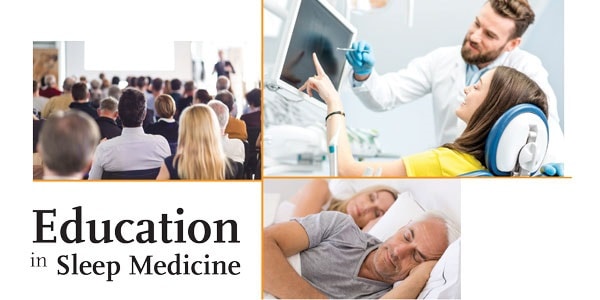
How does the dentist with a deep interest in becoming expert in providing sleep disorder care stay on the right path? The simple answer is to learn from true sleep medicine experts and study the topic as if it is a passion. It takes time, exposure and serious commitment. Like all hard-earned expertise, it is not as easy as you may first be led to believe.
In recent years, I have been impressed by dentists’ foray into providing care for sleep disorders. This editorial expresses my view of the ethical representations of one’s training in sleep medicine to patients, to colleagues and to oneself. It touches on how much training is enough and speaks to ways to stay on track if you have a sincere interest in the field of somnology. Choosing significant, lifelong, education is quite different than settling for the superficial training often found as part of developing easy income streams. The first order of business is to share an aspect of what dentists providing sleep disorder care is all about.
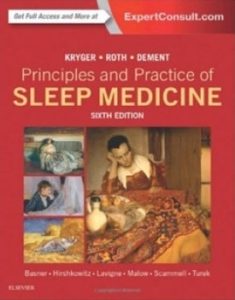 Sleep disorder care is not about providing a product as a lab person or dental assistant without ownership of the health care outcome. Delivering oral appliance therapy (OAT) for sleep related breathing disorders (SRBD) is provision of professional, doctor level care, which includes ensuring the correct diagnosis, delivering appropriate treatment and following up with extended care of a chronic disorder. Even provision of clinically validated surgical interventions for SRBD conditions using MMA or other approaches needs extended follow-up to ensure the outcome is successful over many years.
Sleep disorder care is not about providing a product as a lab person or dental assistant without ownership of the health care outcome. Delivering oral appliance therapy (OAT) for sleep related breathing disorders (SRBD) is provision of professional, doctor level care, which includes ensuring the correct diagnosis, delivering appropriate treatment and following up with extended care of a chronic disorder. Even provision of clinically validated surgical interventions for SRBD conditions using MMA or other approaches needs extended follow-up to ensure the outcome is successful over many years.
Dentists providing sleep disorder care take on an ethical obligation to have adequate understanding of related sleep and medical disorders. Sleep disorders care is a health care discipline which is comparable in knowledge base to the discipline of dentistry. The “Sleep Bible” contains the best collection of how much baseline sleep information is known. This Bible, aka “Principles and Practice of Sleep Medicine”, 6th edition, was released in 2017. It includes 1730 pages (not including the thousands of support references that are only available online) and is far larger than any dental text I have seen; 171 chapters, 317 contributors/authors – the majority are MDs and PhDs and a good number with both degrees, 16 dentist contributors world-wide (11 of which also have PhDs), 3 dentist contributors from the U.S. and only one dentist world-wide as a Section/Deputy Editor – Gilles Lavigne DMD, FRCDC, PhD.
Most dentists realize their doctorate included ~4 years-worth of training and enormous study and financial commitment. Dentists would have a hard time accepting a dental assistant with 25 hours of training in dentistry be considered qualified to provide unsupervised dental care. What if it was a family practice physician with the same 25 hours of dental education? Understandably there is a difference between assistants and doctors, but most dentists would likely opine that 25 hours is enormously insufficient to claim qualification to provide unsupervised dentistry. It’s reasonable, then for authentically credentialed sleep experts to have a similar view that 25 hours of education in sleep medicine does not provide sufficient training to “qualify” dentists in sleep medicine. So, when a sleep academy offers to sell such a “qualified” credential, or give it away with a paid membership with the same 25 hours of education, it is ethically dubious at best and appears to overstate qualifications. Why even provide credentialing to a dentist acknowledging education to the level of a supervised assistant or lab technician. Marginalizing a typically unsupervised dentist in this manner is a difficult pill to swallow and confuses the public who are not exposed to the limits of this “qualification”. Moreover it is insulting to the truly qualified sleep expert that committed to hundreds of hours of specialized study and passed rigorous independent testing.
It leads us to important and meaningful questions such as (1) How many educational hours does it take to become truly qualified or expert in sleep disorders? (2) What testing is required to authenticate qualification? (3) Who qualifies / credentials experts? These questions deserve considered answers as more dentists seek to become involved in providing sleep disorder care.
Currently there are about a dozen Council on Dental Accreditation (CODA) approved U.S. dental schools with post-doctoral M.S. training programs in orofacial pain and at least one university offers a primarily online program. These programs for the most part have added training in sleep disorders without specific and consistent published educational requirements. Although still in their infancy, these dental school “sleep education” programs are among the best options for the serious student in sleep medicine. They have proven themselves with CODA accreditation focusing on the “Orofacial Pain” component of the training and simply piggyback the sleep disorder training. Other disciplines such as prosthodontics and oral surgery also have components of sleep disorder training in their CODA requirements although less well-described. The problem here is the assumption that these training programs are all adequate and similar enough in scope to qualify the post-doctoral students in “sleep disorders”. While some of the dental school educators are true sleep disorders pioneers or experts, it is risky to assume that all educators teaching about sleep disorders in these programs are “qualified” themselves to teach this topic.
So, allow me to elaborate on what I perceive the sleep disorders education pyramid is about and where dentistry will evolve. The top tier of the educational pyramid for dentists would require two components. First, it would require attendance at a university-based medical school interdisciplinary sleep program. These programs have been limited to physicians but are starting to train dentists. Some leading multidisciplinary sleep centers that educate doctors in somnology include Stanford, Oxford, and the Universities of Pennsylvania and Sydney. Training programs may include PhD’s, MS or PGDip (postgraduate diploma) programs in sleep. Entering into a program of this level requires perseverance and may be available to dentists on a case by case basis. The second component to top-tier education would require passing an independent and validated exam. Such examination is available through the independent American Board of Medical Specialties and is administered by various medical disciplines such as pulmonology, otolaryngology and internal medicine, but not open to dentists. While the American Board of Dental Specialties (ABDS) is well on its way to becoming a qualification board, independent to the ADA’s recognized specialties, the ABDS has yet to authenticate such testing.
The next level of expertise in the educational pyramid is through training, experience and testing from the various university based specialty dental programs which include rotations through medical sleep centers. This next level of expertise would have testing process available to dentists through the best current testing process: that offered through the American Board of Dental Sleep Medicine (ABDSM). ABDSM qualification is recognized by the leading international sleep medicine group, the American Academy of Sleep Medicine (AASM). Other dental, oro/craniofacial pain and sleep groups, with no AASM recognition, have recently developed copycat Diplomate awards, without apparent validation by independent parties. Some of these alternative awards in sleep medicine unfortunately appear little more than bought certificates, with no significant sleep disorder training pre-requisites to sit for their exam.
The net result is to bring the whole authenticating process down by lowering the quality control aspect. A robust education and testing is necessary to qualify expertise, as anything less opens dentistry up to attack on credibility from other sleep experts. This type of qualification commitment is a very different message than the easy education/easy income approach increasingly used as a carrot to entice dentists to provide sleep disorder care. The lowest training and education level of dentists in sleep medicine is provided by the entrepreneurial and most
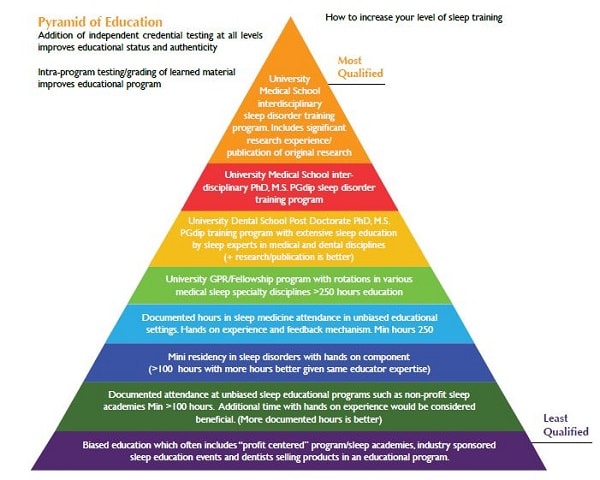 often self-proclaimed dentist experts, typically introduced or supported by industry. These educational venues and programs often feature products that are sold to dentists. Avoiding these programs is important, as it is hard to unlearn bad information and a false sense of empowerment is a dangerous thing. Some of these educational programs were sold to dentists for tens of thousands of dollars and often by opportunistic dentists or companies offering get rich quick schemes. There is simply no substitute for hours of study and commitment to the topic.
often self-proclaimed dentist experts, typically introduced or supported by industry. These educational venues and programs often feature products that are sold to dentists. Avoiding these programs is important, as it is hard to unlearn bad information and a false sense of empowerment is a dangerous thing. Some of these educational programs were sold to dentists for tens of thousands of dollars and often by opportunistic dentists or companies offering get rich quick schemes. There is simply no substitute for hours of study and commitment to the topic.
Fortunately for our patients there is a mid-level sleep medicine education. A “weekend warrior” education in sleep medicine, and even a year long, 3-5 weekend, mini-residency university based education is no substitute for formal training, but it is significantly better than industry sponsored education. The reason being that university based mini residency programs are more likely associated with true sleep experts providing unbiased education.
Unfortunately, these mini residency programs still lack quality control in accepting students, lack oversight and are devoid of formal testing. On the bright side the mini residencies have continuity, options for individualized attention and often exposure to a wide range of sleep related information. These programs also allow for development of contacts with other like-minded dentists with opportunities to learn from each other. In between the industry and university based education are the non-profit sleep academy programs.
These are fabulous venues to meet many sleep medicine  enthusiasts and experts, connect with researchers to discuss their scientific abstracts, as well as experience what industry is offering in their sales booths. Their programs often include a number of sponsorships and the academy itself may have a political agenda that dictates the information they present. However, there should be a requirement for annual or biannual attendance of 25 hours at this minimal level of education when providing sleep medicine care, much as any discipline requires ongoing continuing education. Not to be forgotten are local study clubs devoted to sleep disorders care; the range of help in these venues is totally undefined and depends entirely on the makeup and programming of the group.
enthusiasts and experts, connect with researchers to discuss their scientific abstracts, as well as experience what industry is offering in their sales booths. Their programs often include a number of sponsorships and the academy itself may have a political agenda that dictates the information they present. However, there should be a requirement for annual or biannual attendance of 25 hours at this minimal level of education when providing sleep medicine care, much as any discipline requires ongoing continuing education. Not to be forgotten are local study clubs devoted to sleep disorders care; the range of help in these venues is totally undefined and depends entirely on the makeup and programming of the group.
So how does the dentist with a deep interest in becoming expert in providing sleep disorder care stay on the right path? The answer is to learn from true experts and study the topic whenever possible in a formal university based interdisciplinary sleep program. This is not to dissuade the average dentist from practicing sleep medicine but rather encourage them to grow out of the supervised role as a technician and assistant and into an equal partnership position with other sleep experts. We are fortunate now to have a number of true dentist experts in sleep medicine scattered around the globe from whom to learn.
To determine an expert, look at their training background, their degrees, credentials and qualifications, what have they published in peer reviewed journals and if they previously presented unbiased information. This is in comparison to typically biased information provided by speakers with industry backing, speakers politically motivated to promulgate their societies self-survival agenda or speakers benefiting from sales of their own related products, support systems or future CE sales. Above are 5 questions you should ask when signing up to sleep education programs, or for that matter, any program geared towards your education.
Finally, I leave you with one recommendation: Every day you practice sleep medicine you should open up the Sleep Bible and learn something new. This study ethic is sure to keep you humble, grounded and appreciative of all the work that pioneers did to enable you. This is part of a commitment you have as the perpetual student and healthcare provider, to your patient who is entrusting their life to you.
